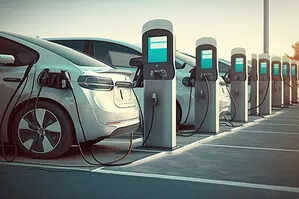
Despite the approval of billions in funding by the Joe Biden administration two years ago, progress in expanding the electric vehicle (EV) charging infrastructure in the United States remains sluggish. Only Ohio and New York have utilized the allocated funds to establish new EV charging stations, highlighting the delayed realization of a comprehensive charging network.
A sum of USD 5 billion earmarked for states to develop a network of fast chargers has encountered challenges, with several states yet to award contracts or initiate construction, as outlined in a report by The New York Times. As of December 15, only 28 states and Puerto Rico have either awarded contracts or initiated bids for charger projects, while the remaining states lag significantly in progressing towards construction.
This slow deployment of the charging network poses a hurdle to President Biden’s objective of achieving electric vehicles constituting half of new car sales by 2030. A recent survey by the Energy Policy Institute at the University of Chicago and the Associated Press-NORC Center for Public Affairs Research reveals that Americans identify vehicle cost as the primary barrier to adopting electric vehicles. Concerns about insufficient charging stations and prolonged charging times, coupled with perceived unpreparedness of battery technology, deter approximately 8 in 10 and 7 in 10 respondents, respectively, from considering electric vehicle purchases.
In an effort to incentivize EV adoption, the Biden administration offers tax credits of up to USD 7,500 for EV purchases. Despite these initiatives, the administration’s goal of establishing a national network comprising at least 500,000 public chargers by 2030 faces challenges. Research from the National Renewable Energy Laboratory suggests that the nation will require over one million public charging ports by the end of the decade, underscoring the scale of the infrastructure demand.

